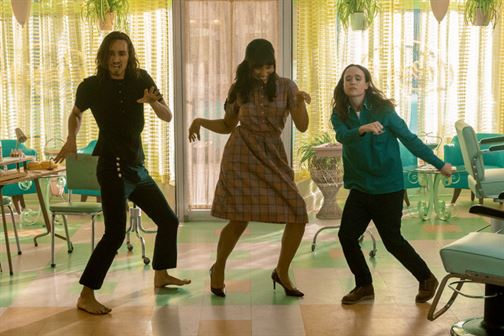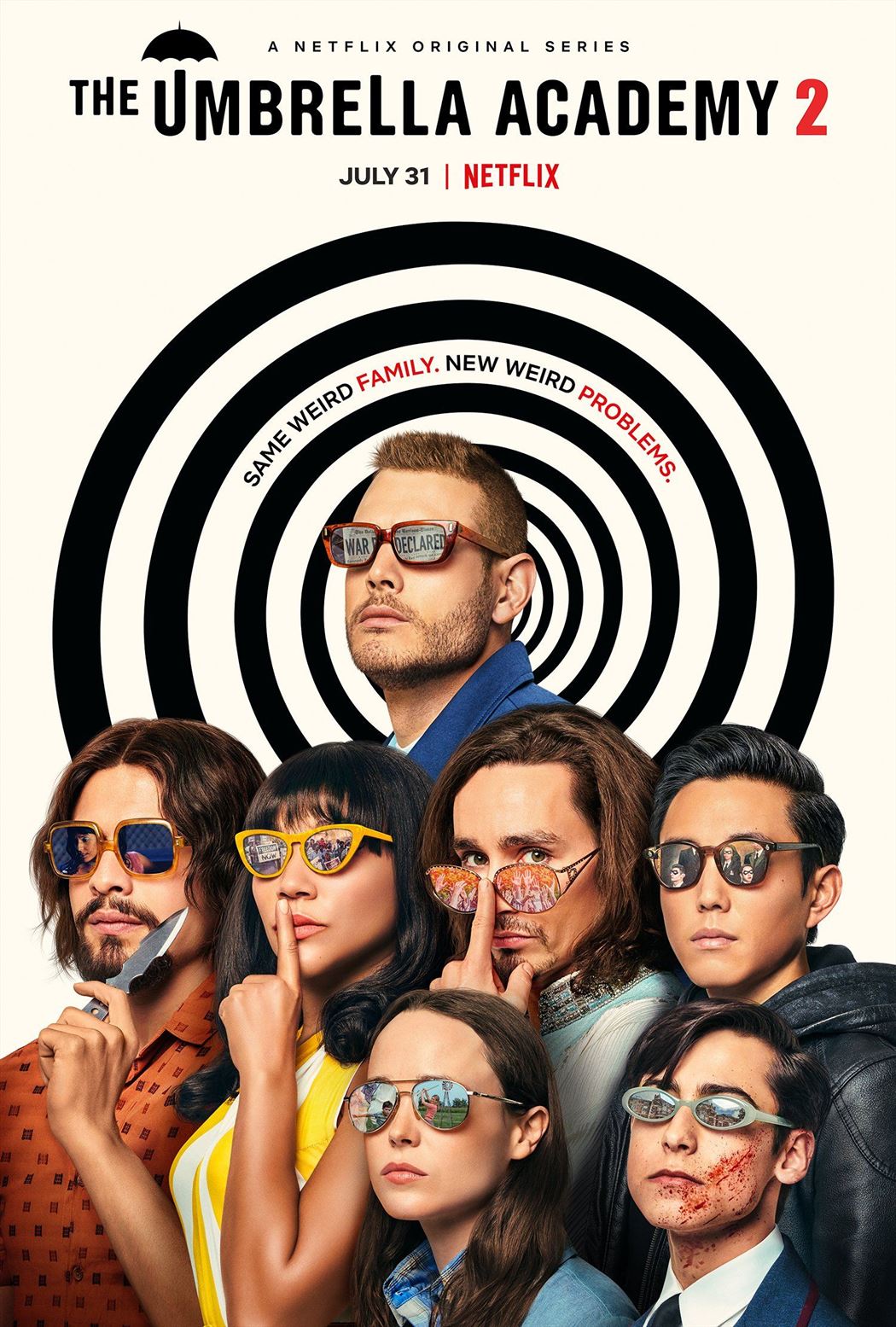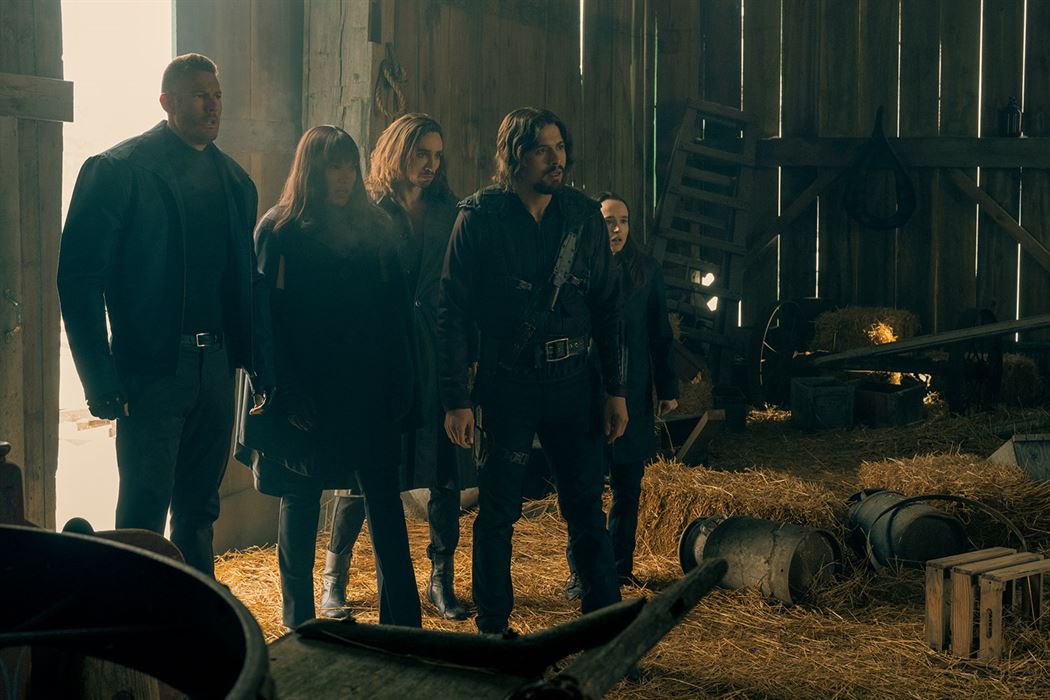In the year since the dynamic, darkly comical and eccentric first season of “The Umbrella Academy” premiered on Netflix, the world has changed in unimaginable ways.
Amidst a surreal landscape featuring the civil rights movement of our time, a global pandemic, a looming election and an overwhelming amount of anxiety-inducing information, it seems appropriate that the complicated heroes of “The Umbrella Academy” find themselves in similarly turbulent times during the show’s second season, which premiered on Netflix on July 31.
Season one was near hallucinatory at times, with its stunningly graphic fight scenes, time travel shenanigans, pleasingly saturated color palette and a soundtrack running the gamut from Etta James to Toro y Moi. As a fan of the original graphic novel, I recall waiting with bated breath to see how the screen adaptation would translate the absurd narrative of volumes one and two.
https://www.youtube.com/watch?v=Me0eoCwLj-A
The plot was loyal to the source material on a skeletal level. But, I enjoyed the story enough to shut up the nagging reader in my brain, largely because of the incredible dimension brought to the characters by some very talented actors.
Caffeine-dependent Number Five, played by Aidan Gallagher, made me particularly happy. Another noteworthy character is the lovably flawed Klaus Hargreeves, played by Robert Sheehan. I would be remiss if I did not give immense praise to Vanya Hargreeves, played by Ellen Page, who “just isn’t special.”
Season two kept the blistering cinematography of its preceding season. With six leading characters to juggle, “The Umbrella Academy,” consistently does an impressive job of giving each character their own distinct narrative as it deftly knits the main story together. The viewer might be left a little dazed at times, but a rewind is always possible for any missed details.
But where season one focused more on the adoptive family as heroes in their own strange modern world, season two snatches the Umbrella Academy out of their bubble and literally drops them into one of the most turbulent times in recent American history.
Finding themselves in Dallas, Texas during varying points of the early 1960s, the adoptive siblings are once again separated. There is a reckoning of sorts to be had here for each character, much like in the first season. But in a period much idealized by some who never experienced it, their struggles become larger than themselves.
Allison Hargreeves, played by Emmy Raver-Lampman, the only Black member of The Umbrella Academy, runs into a restaurant in a panic upon her sudden arrival only to find that it is a “whites only” establishment. Vanya is enamored with a married woman, a double whammy of sinful behavior in a time when gay people were considered mentally ill.
These are not fantastical heroic struggles, like having to implement multiverse theory to prevent the apocalypse. Real people have lived these experiences and still do every day.

“The Umbrella Academy” is a surprising combination of sordid humor, graphic novel pizzazz and deeply human moments.
Photo courtesy of Netflix Photo credit: Netflix
“The Umbrella Academy” handles delicate topics with the humor and finesse that it has proven itself capable of. Allison’s newfound purpose and struggle as a civil rights activist feels particularly relevant now. Klaus’s inevitable reckoning with his many traumas and addictions is honest and sympathetic.
We often find ourselves gravitating toward heroes in part because they remind us of ourselves. Their powers rarely exempt them from the consequences of being human, and if they do, they only present a new set of drawbacks. “The Umbrella Academy” constantly makes its heroes deal with problems that are beyond the simple solutions their unique abilities can provide.
As much as I love these characters, they are often myopic because of their sheltered upbringings. Perhaps this is what makes watching them clash with the real world so frightening and satisfying, and what makes me cheer out loud when they finally triumph.
In its second season, “The Umbrella Academy,” matures with a socially conscious storyline while ever upping its ante of sardonic absurdity. If you’re in the same mindset as me and you’re not sure whether you want to laugh, cry, dance or just appreciate superb cinematography and costumes, “The Umbrella Academy,” gives you what you need to do it all.




